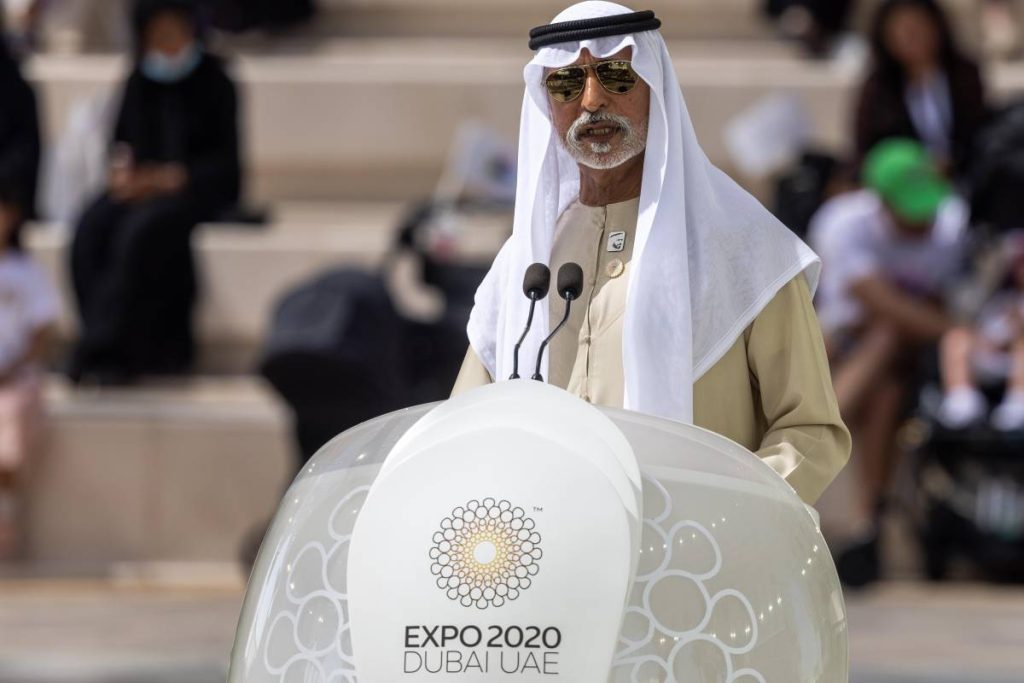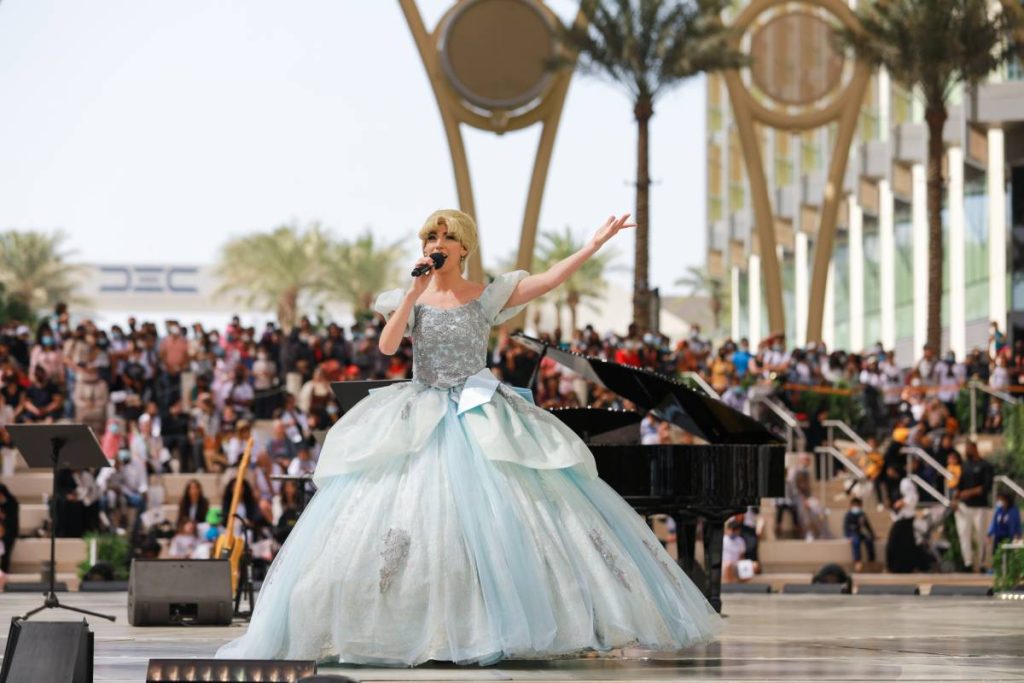The UAE Rare Disease Society, yesterday, launched the Expo 2020 Dubai portal opening to mark World Rare Disease Day 2022 and shed light on rare diseases and families and patients living with rare conditions throughout the UAE…reports Asian Lite News
The society also hosted a family event at Al Wasl Dome featuring live performances and entertainment. It led the daily parade in solidarity with the 400 million worldwide living with a rare disease.
The activity marked this year’s Rare Disease Day, which takes place on the last day of February each year, is a global initiative. The campaign seeks to raise awareness amongst policy makers, public authorities, industry representatives, researchers and health professionals. While rare diseases are typically classified as those which affect fewer than 5 in 10,000 people, as there are more than 7,000 individual conditions, collectively, they have a significant impact on families and communities.

Marwan Janahi, Chair of the UAE Rare Disease Society and Managing Director of Dubai Science Park, said, “We at the UAE Rare Disease Society are here today at Expo 2020 Dubai to support those living with rare diseases in the UAE and to mark Rare Disease Day. It is critical that we share the stories of people living with rare conditions and are grateful to our partner at Expo 2020 Dubai for providing us with this platform. Our society is committed to giving our heroes living with rare diseases and their families the medical, psychological and social support they need and deserve. But we cannot do it alone. We want to raise awareness and reduce stigma among the public, work with medical professionals to speed up times for diagnosis, and encourage more research and investment into rare diseases, their identification, treatment and prevention.”
The Expo 2020 Dubai portal launch led to a family-friendly event at Al Wasl Dome, which began with an opera performance of the UAE national anthem. It featured live performances and entertainment, including an immersive and educational session for parent, patients, and the audiences. The society’s new mascots also made their first official appearance at the event, and this included Mayed and Meera. They provided the audience with an informative session on the topic of rare diseases in the UAE. The Wasl Dome was also lit up with blue, green, pink, and purple lights, the official colours of Rare Disease Day.

Khazina Al Mansoori, the parent of Shamma, an 18-year-old living with Williams syndrome, said, “Being a parent of a child living with a rare condition comes with its challenges as well as its magic moments. I am grateful for the society’s unwavering support and for raising awareness of rare diseases in the UAE as we continue to fight the stigma and lack of understanding about those affected by rare conditions. I am also thankful for the UAE Government and all of our doctors’ commitment and dedication to ensuring that our children are provided with the quality treatments and therapies that they need.”
Dr. Amal Al Tenaiji, Consultant Paediatric Metabolic Genetics Khalifa Medical City, stated, “Around 80 percent of rare diseases in the UAE are genetic, and it is important that we continue to shed light on the rare conditions affecting numerous families across the Emirates. It is events such as these that help us to educate the public and raise widespread community awareness. We also need to raise awareness among our colleagues in the medical community to ask them to think about the possibility of rare diseases when making a diagnosis. On average, patients with rare diseases and their parents wait six years before being properly diagnosed, and that is something we can work to improve.”
ALSO READ: UAE, Egypt ink deal bolster trade and economic ties
The event concluded with the daily parade, led by Dubai Police Marching Band, followed by the society and its friends, including families and heroes from across the UAE. It took participants through some of Expo 2020 Dubai’s pavilions.
Some 400 million people worldwide live with rare diseases, 72 percent of which are genetic. An estimated 7.8 million people in the Middle East live with a rare disease today – three in four of which are children. (WAM)

